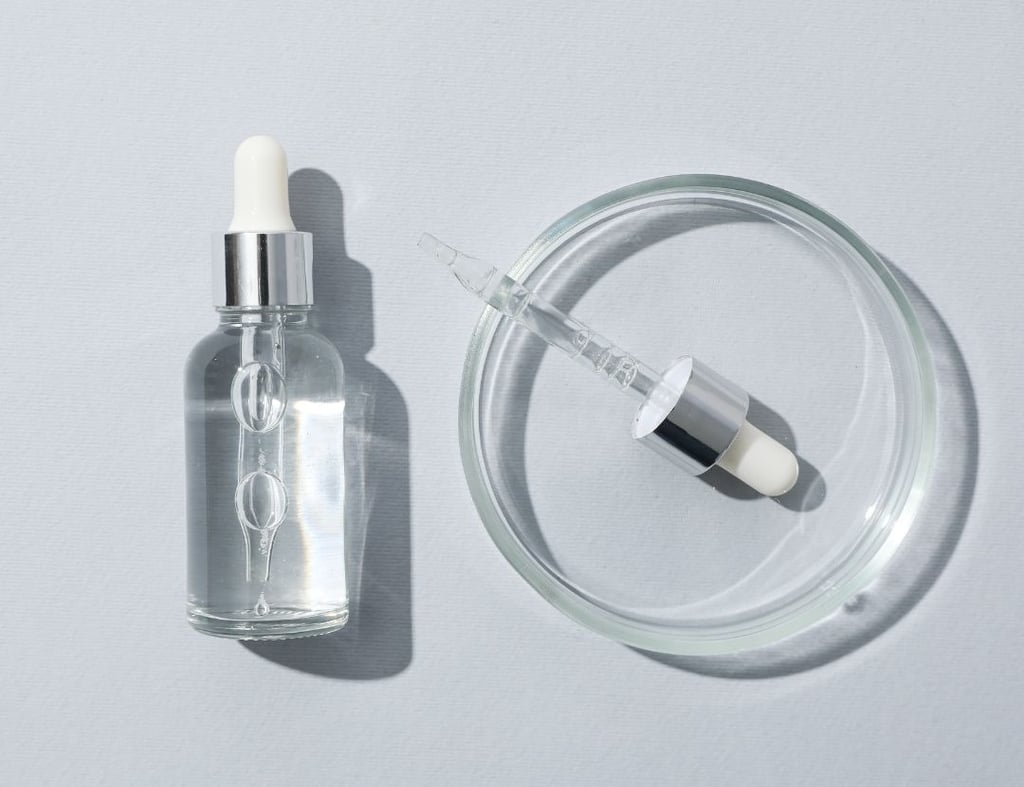Vitamin C, Retinol, and Hyaluronic Acid: Which One is Right for Your Skin?
When it comes to skincare, the vast array of ingredients available can make it difficult to know where to start, especially when it comes to powerful actives like Vitamin C, retinol, and hyaluronic acid. These ingredients are commonly recommended for improving skin health, but each serves a different purpose. So, how do you decide which one is best for your skin? Let’s break down each of these powerhouse ingredients to help you determine which one is right for you.
3/5/20256 min read


In the world of skincare, the debate between Korean and Western products is a hot topic, especially when it comes to facials. Each approach has its distinct philosophies, ingredients, and techniques that cater to different skin care needs. So, which products are better for facials? Let’s break it down by understanding the unique qualities of both Korean and Western skincare.
Korean Skincare: The Art of Layering and Hydration
Korean skincare is renowned for its meticulous, multi-step routines and its emphasis on hydration. Here’s why Korean products might be a great choice for facials:
1. Layering for Maximum Hydration
Korean facials typically focus on achieving plump, dewy skin, which is considered the ideal complexion. The Korean beauty routine often involves multiple layers of lightweight products, starting with toners and ending with serums, emulsions, and moisturizers. This multi-step process helps to hydrate the skin deeply, which is a crucial element in Korean skincare.
For facials, hydration is key, and Korean products are designed to give the skin the maximum moisture it needs without feeling heavy. Products like essences, ampoules, and sheet masks are particularly popular in Korean skincare, offering a highly concentrated boost of hydration and active ingredients.
2. Innovative and Unique Ingredients
Korean skincare frequently incorporates ingredients that are unique and highly effective, such as snail mucin, ginseng, centella asiatica, and green tea. These ingredients are known for their calming, anti-aging, and brightening properties, which can work wonders during facials.
Snail mucin helps to regenerate skin and promote healing, making it ideal for treating acne scars or pigmentation.
Centella asiatica is known for its soothing properties, making it great for sensitive skin or irritated skin post-facial.
Ginseng and green tea are antioxidants that protect the skin from environmental stress and enhance overall radiance.
Korean skincare brands are also known for their innovation in packaging, like sheet masks that are infused with potent serums. These provide a spa-like facial experience, delivering hydration and nourishment directly to the skin.
When it comes to skincare, the vast array of ingredients available can make it difficult to know where to start, especially when it comes to powerful actives like Vitamin C, retinol, and hyaluronic acid. These ingredients are commonly recommended for improving skin health, but each serves a different purpose. So, how do you decide which one is best for your skin? Let’s break down each of these powerhouse ingredients to help you determine which one is right for you.
1. Vitamin C: Brightening and Protecting Your Skin
What it does:
Vitamin C is a potent antioxidant known for its ability to brighten skin, protect against environmental stressors, and support collagen production. It helps to neutralize free radicals caused by pollution, UV rays, and other environmental factors that accelerate skin aging. This makes it an excellent choice for anyone looking to improve skin tone, reduce hyperpigmentation, and combat early signs of aging.
Best for:
Hyperpigmentation: Vitamin C helps lighten dark spots and even out skin tone.
Dullness: If your skin looks tired or uneven, Vitamin C can give it a bright, fresh glow.
Sun protection: While it doesn’t replace sunscreen, Vitamin C can enhance your skin's defense against UV damage and oxidative stress.
How to use:
Vitamin C should ideally be applied in the morning, as it helps to protect your skin throughout the day. Use it after cleansing and before applying sunscreen. If you’re new to Vitamin C, start with a lower concentration (10–15%) to avoid irritation.
Skin Types:
Vitamin C works for most skin types, but those with sensitive skin should be cautious. Opt for a gentler, less acidic formulation if irritation occurs.
2. Retinol: Anti-Aging and Skin Renewal
What it does:
Retinol (a form of Vitamin A) is one of the most effective anti-aging ingredients available. It accelerates cell turnover, stimulates collagen production, and helps to clear pores, making it ideal for targeting fine lines, wrinkles, and acne. By speeding up the process of skin renewal, retinol can give you smoother, more youthful-looking skin over time.
Best for:
Anti-aging: Retinol is highly effective at reducing the appearance of fine lines and wrinkles by promoting collagen production.
Acne and clogged pores: By encouraging cell turnover, retinol helps prevent pores from becoming clogged with dead skin cells, reducing breakouts.
Uneven skin texture: If you have rough or bumpy skin, retinol can smooth out the texture by encouraging the shedding of old skin cells.
How to use:
Retinol should be used at night, as it can make your skin more sensitive to the sun. Start with a low concentration (0.25–0.5%) and gradually work your way up to a higher strength as your skin builds tolerance. Always follow with a moisturizer to prevent dryness, as retinol can be irritating, especially when you first start using it.
Skin Types:
Retinol is most beneficial for oily, acne-prone, or mature skin, but it can be drying or irritating for sensitive skin. If you have dry or sensitive skin, consider using it less frequently or pairing it with a hydrating product.


3. Hyaluronic Acid: Hydration and Plumpness
What it does:
Hyaluronic acid is a humectant that attracts and retains moisture in the skin. It holds up to 1000 times its weight in water, making it a powerful hydrator that helps maintain skin's moisture balance. While it’s not a treatment for aging or pigmentation, it is a great addition to any skincare routine for keeping your skin plump, soft, and well-hydrated.
Best for:
Dry or dehydrated skin: Hyaluronic acid is a must-have for those with dry, flaky, or dull skin, as it helps to lock in moisture.
Plumping fine lines: While it doesn’t address wrinkles directly, the deep hydration from hyaluronic acid can plump up fine lines, making them less noticeable.
Sensitive skin: Hyaluronic acid is gentle on the skin and can be used by all skin types, including sensitive skin, without irritation.
How to use:
Hyaluronic acid can be used both morning and night. Apply it to damp skin to lock in moisture, and follow with a moisturizer to help seal in the hydration. It can be layered with other skincare ingredients, making it an easy addition to your existing routine.
Skin Types:
Hyaluronic acid works for all skin types, especially those with dry, dehydrated, or aging skin. It’s also safe for sensitive skin and can be paired with other actives like retinol or Vitamin C.
Which One is Right for You?
Consider your skin concerns:
If you're looking for brightening and even skin tone, Vitamin C is your best bet. It's especially useful for combating dark spots, hyperpigmentation, and overall dullness.
If you want to target aging signs like fine lines and wrinkles, retinol is the most potent option. It encourages skin renewal and supports collagen production for smoother, more youthful skin.
If you need hydration and a plump, youthful appearance, hyaluronic acid should be your go-to ingredient. It's perfect for maintaining moisture and improving skin texture without irritation.\
Consider your skin type and sensitivity:
Dry or dehydrated skin will benefit from hyaluronic acid, which will provide an instant hydration boost. You can also use it alongside Vitamin C or retinol to help mitigate any dryness.
Oily or acne-prone skin will find retinol especially effective for acne prevention and controlling oil production. Vitamin C will also help brighten any post-acne scars.
Sensitive skin should be cautious with Vitamin C and retinol, as both can cause irritation. Opt for gentler formulations of these actives or incorporate them slowly into your routine. Hyaluronic acid, on the other hand, is gentle and hydrating for sensitive skin.
How to Layer Them:
Morning Routine:
Cleanser
Vitamin C serum (for brightening and protection)
Moisturizer
Sunscreen (always apply sunscreen with Vitamin C to enhance its protective effects)
Night Routine:
Cleanser
Retinol serum (apply 2-3 times per week to start)
Hyaluronic acid serum (to hydrate and soothe)
Moisturizer (to lock in hydration)
Conclusion: Finding Your Perfect Match
In 2025, Vitamin C, retinol, and hyaluronic acid each play an important role in skincare, but knowing which one is best for you depends on your skin’s needs and concerns. If you’re looking for hydration, go for hyaluronic acid. For tackling signs of aging and acne, retinol is your ally. And if you’re focused on brightening and protecting your skin from environmental damage, Vitamin C is a must-have.
For many, using all three in a layered skincare routine can offer maximum benefits. Just remember to introduce them gradually and consider your skin type to avoid irritation. With the right combination, you can achieve healthy, radiant skin that looks and feels its best.
Facial Bangkok
Discover top-notch treatments for ultimate facial rejuvenation in Bangkok - Thailand.
Guide
© 2026. All rights reserved. Designed by Pimclick SEO Agency
Article
